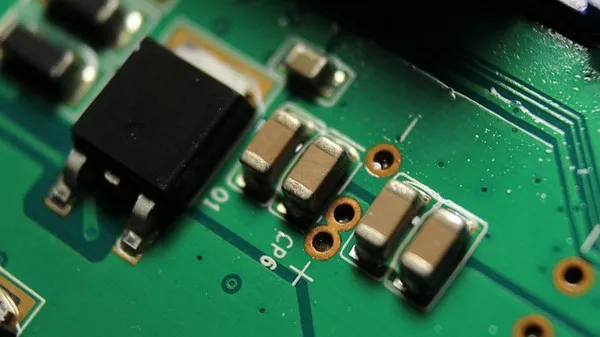In modern industrial processes, instrumentation plays a pivotal role in ensuring optimal performance, safety, and efficiency. Instrumentation refers to the use of various devices and sensors to measure, monitor, and control the key parameters in industrial operations. This article explores the significance of instrumentation in industrial processes, its applications, benefits, and the potential impact on productivity and quality. By providing real-time data and facilitating precise control, instrumentation empowers industries to make informed decisions, enhance process reliability, and adhere to stringent regulatory standards.
Industrial processes are complex systems that involve the transformation of raw materials into finished products. To achieve seamless operations, industries rely on a wide array of equipment, machinery, and technologies. Instrumentation, an integral part of industrial automation, emerges as a critical component that empowers engineers and operators to manage processes effectively.
What is Instrumentation in an Industrial Process?
Instrumentation involves the implementation of various sensors, transmitters, controllers, and data acquisition systems to measure, monitor, and control process variables. These variables can include temperature, pressure, flow rate, level, pH, humidity, and more. By providing real-time data, instrumentation enables operators to make informed decisions, maintain optimal conditions, and mitigate potential risks.
The Role of Instrumentation in Industrial Processes:
1. Real-time Monitoring and Data Acquisition:
Instrumentation facilitates continuous real-time monitoring of process variables. Data acquisition systems gather information from multiple points within the industrial process, generating insights into the current status and performance of various parameters. This data empowers engineers to detect deviations from standard operating conditions promptly, enabling them to take corrective actions and avoid potential downtime or product defects.
2. Process Control and Automation:
With instrumentation in place, industries can automate their processes for improved efficiency and consistency. Automated control systems utilize the data collected by instruments to adjust process variables automatically, ensuring stability and uniformity in production. This not only enhances product quality but also optimizes resource utilization and reduces operational costs.
3. Enhancing Safety and Risk Mitigation:
In hazardous industrial environments, instrumentation plays a crucial role in safeguarding personnel, equipment, and the environment. Sensors can detect unsafe conditions, such as abnormal temperatures or pressure levels, and trigger alarms or emergency shutdowns to prevent accidents or equipment damage. By providing real-time safety information, instrumentation aids in risk mitigation and compliance with safety standards.
4. Quality Assurance and Process Optimization:
Instrumentation contributes significantly to quality assurance by maintaining precise control over process variables. Consistent monitoring and adjustments ensure that products meet the desired specifications, reducing defects and waste. Moreover, instrumentation allows engineers to identify process inefficiencies and bottlenecks, leading to process optimization and increased productivity.
5. Remote Monitoring and Maintenance:
Modern instrumentation systems often support remote monitoring capabilities, enabling operators and engineers to access real-time data from off-site locations. This feature streamlines maintenance and troubleshooting efforts, as potential issues can be identified remotely, and prompt action can be taken to resolve them, reducing downtime and increasing overall operational efficiency.
Applications of Instrumentation in Industrial Processes:
1. Oil and Gas Industry:
In the oil and gas sector, instrumentation plays a vital role in drilling, refining, and transportation processes. Sensors monitor parameters like pressure, flow rate, and composition, ensuring the safe and efficient extraction and processing of hydrocarbons.
2. Chemical Processing:
Chemical plants rely on instrumentation to maintain precise control over temperature, pressure, and reactant concentrations during various chemical reactions. This ensures consistent product quality and prevents hazardous situations.
3. Power Generation:
In power plants, instrumentation is instrumental in monitoring steam parameters, fuel levels, and emissions. Real-time data helps optimize power generation, minimize fuel consumption, and adhere to environmental regulations.
4. Pharmaceuticals:
Pharmaceutical manufacturing requires stringent control over temperature, humidity, and other critical parameters to produce medicines of consistent quality. Instrumentation ensures compliance with regulatory standards and reduces the likelihood of contamination.
5. Food and Beverage Production:
Instrumentation is crucial in maintaining hygienic conditions, monitoring ingredient proportions, and ensuring precise cooking and fermentation processes in the food and beverage industry.
6. Automotive Manufacturing:
Automobile assembly lines utilize instrumentation for quality control and to regulate robotic operations during manufacturing processes, improving production speed and product reliability.
Benefits of Instrumentation in Industrial Processes:
1. Increased Efficiency:
Automated control systems driven by instrumentation optimize process variables, leading to higher production efficiency and reduced energy consumption.
2. Enhanced Product Quality:
Real-time monitoring and precise control provided by instrumentation lead to consistent product quality, meeting customer expectations and minimizing waste.
3. Reduced Downtime:
Early detection of anomalies through instrumentation allows for timely maintenance and repair, minimizing costly downtime.
4. Improved Safety:
Instrumentation systems help prevent accidents and protect workers by promptly identifying and addressing potential safety hazards.
5. Regulatory Compliance:
Industries can meet stringent regulatory standards by employing instrumentation to maintain process parameters within specified limits.
6. Data-Driven Decision Making:
Real-time data from instrumentation empowers industries to make informed decisions and implement data-driven process improvements.
Conclusion:
Instrumentation is undeniably vital in modern industrial processes, offering numerous benefits to various sectors. By providing real-time monitoring, process control, and automation, instrumentation enables industries to enhance productivity, optimize resource utilization, and ensure consistent product quality. Additionally, its role in safety, risk mitigation, and regulatory compliance cannot be understated, as it protects personnel, equipment, and the environment. As industries continue to embrace automation and smart technologies, the significance of instrumentation in driving efficiency and reliability will undoubtedly persist and evolve, shaping the future of industrial processes.

